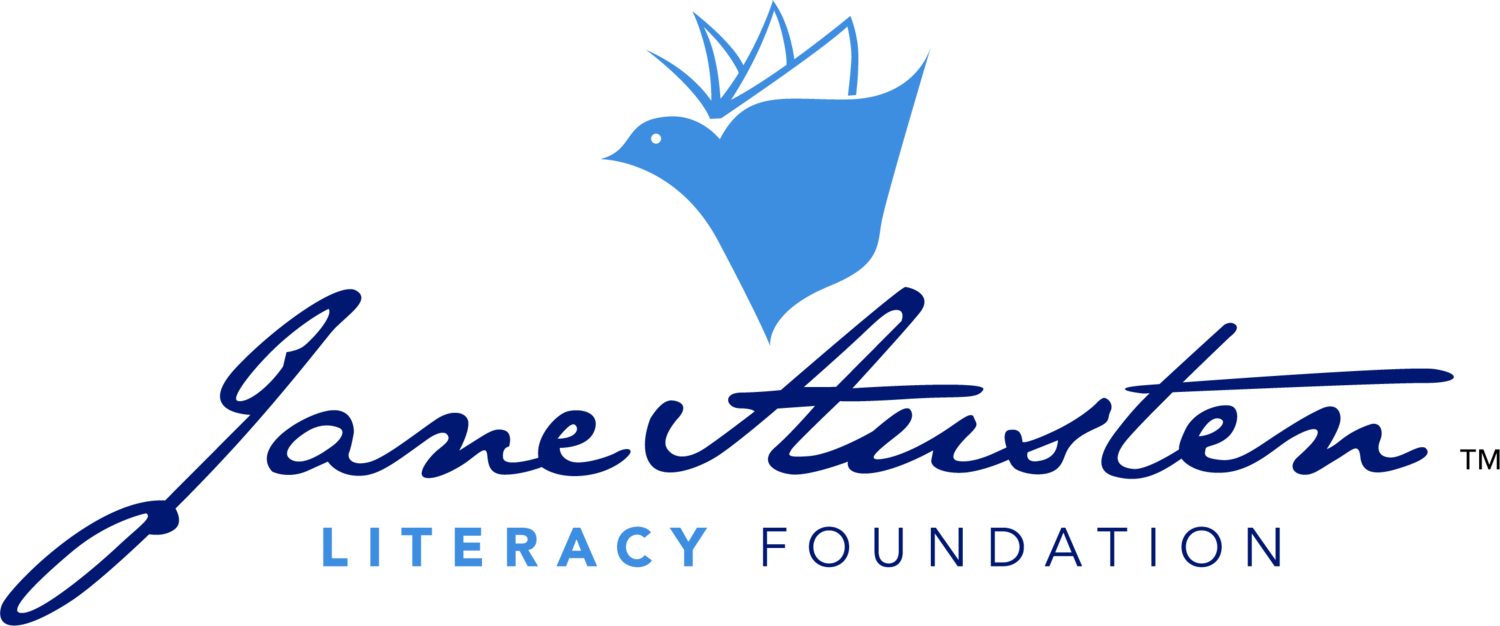WE LAUNCHED OUR LITERACY MENTORS PROGRAMME ON 8TH SEPTEMBER 2018 - INTERNATIONAL LITERACY DAY - TO ENCOURAGE CHILDREN TO WRITE
“Anna,—We have been very much amused by your three books, but I have a good many criticisms to make, more than you will like”.
These words, written by Jane Austen on the 9th September 1814 to her niece Anna, reveal an aspect of Jane Austen’s life we rarely reflect on – her role as a literary mentor. Jane Austen had over thirty nieces and nephews, a few of whom would send her their writings for critique. Her niece, Anna Austen Lefroy, appears to be the recipient of Jane’s most prolific correspondence regarding her thoughts on the art of writing a novel. It is evident that Anna was one of Jane’s nieces most influenced by her.
Anna was the daughter of Jane Austen’s eldest brother, James. Jane’s affection for Anna was apparent from the start with selected writings of Jane’s juvenilia dedicated to Anna when she was just a baby. In 1814, at the age of 17, Anna began the authorship of ‘Which is the Heroine’ and sought her aunt’s advice. Through preserved letters of 1814, we have an insight into Jane’s views on character development and conversation in novels. We also have insight into an aunt unafraid of accompanying her praise with constructive criticism.
In mid-1814, Jane first responds to Anna’s manuscript, “My dear Anna,—I am very much obliged to you for sending your MS. It has entertained me extremely; indeed all of us. I read it aloud to your grandmamma and Aunt Cass, and we were all very much pleased. The spirit does not droop at all… a few verbal corrections are all that I felt tempted to make…”
Following her initial praise and further reading, Jane responds to Anna’s work in a letter dated the 9th September of the same year, “You describe a sweet place, but your descriptions are often more minute than will be liked. You give too many particulars of right hand and left.”
Jane’s commentary then turns to character dynamics, “You are now collecting your people delightfully, getting them exactly into such a spot as is the delight of my life. Three or four families in a country village is the very thing to work on, and I hope you will do a great deal more, and make full use of them while they are so very favorably arranged. You are but now coming to the heart and beauty of your story. Until the heroine grows up the fun must be imperfect, but I expect a great deal of entertainment from the next three or four books, and I hope you will not resent these remarks by sending me no more.”
Despite her criticisms, Jane is quick to encourage her niece and assure her of her work’s merit. Writing to Anna a few months later, Jane assures her, “My dear Anna,—I have been very far from finding your book an evil, I assure you. I read it immediately and with great pleasure. I think you are going on very well.” It is in this letter, full of feedback on Anna’s characters, their adventures and possible fates, that Jane offers the final lasting pieces of advice to Anna on her writing. Jane and Anna’s last surviving correspondence is dated the 23rd of June 1816 and refers only to the lives of their mutual acquaintances.
Sadly, Anna never completed her novel and reportedly destroyed it following her aunt’s death. She did take up her pen again however, being the first writer to attempt the completion of Jane’s unfinished novel, Sanditon, after inheriting the manuscript. Notably, she also worked with her half-brother, James Edward Austen-Leigh, to produce the biography ‘A Memoir of Jane Austen’ in 1869. Jane’s role as a mentor clearly had an impact on Anna as a writer.
Walk in Jane’s footsteps
In 1815, Jane wrote to her ten year old niece Caroline, “Now that you are become an Aunt, you are a person of some consequence & must excite great Interest what You do. I have always maintained the importance of Aunts as much as possible…” As a Foundation committed to honouring the life, writings and legacy of Jane Austen, our Literacy Mentors programme is a fitting component of our work.
Our Literacy Mentors programme partners with Pobble, a UK based organisation working with schools to make writing exciting for children! School students from across the globe upload their writing to the Pobble online platform, where our Literacy Mentors provide feedback and encouragement. As a Literacy Mentor team, we are proud to walk in the footsteps of Jane Austen, providing encouragement to the next generation of budding authors. If you would like to join our team of Literacy Mentors, or for more information, please email us at literacymentors@janeaustenlf.org
© Jacqueline Harris - Literacy Mentors Programme Manager, Jane Austen Literacy Foundation
For more information on our Literacy Mentors programme, see our earlier issue of Pride & Possibilities from April 2019.
Image credit: Julia B. Grantham


